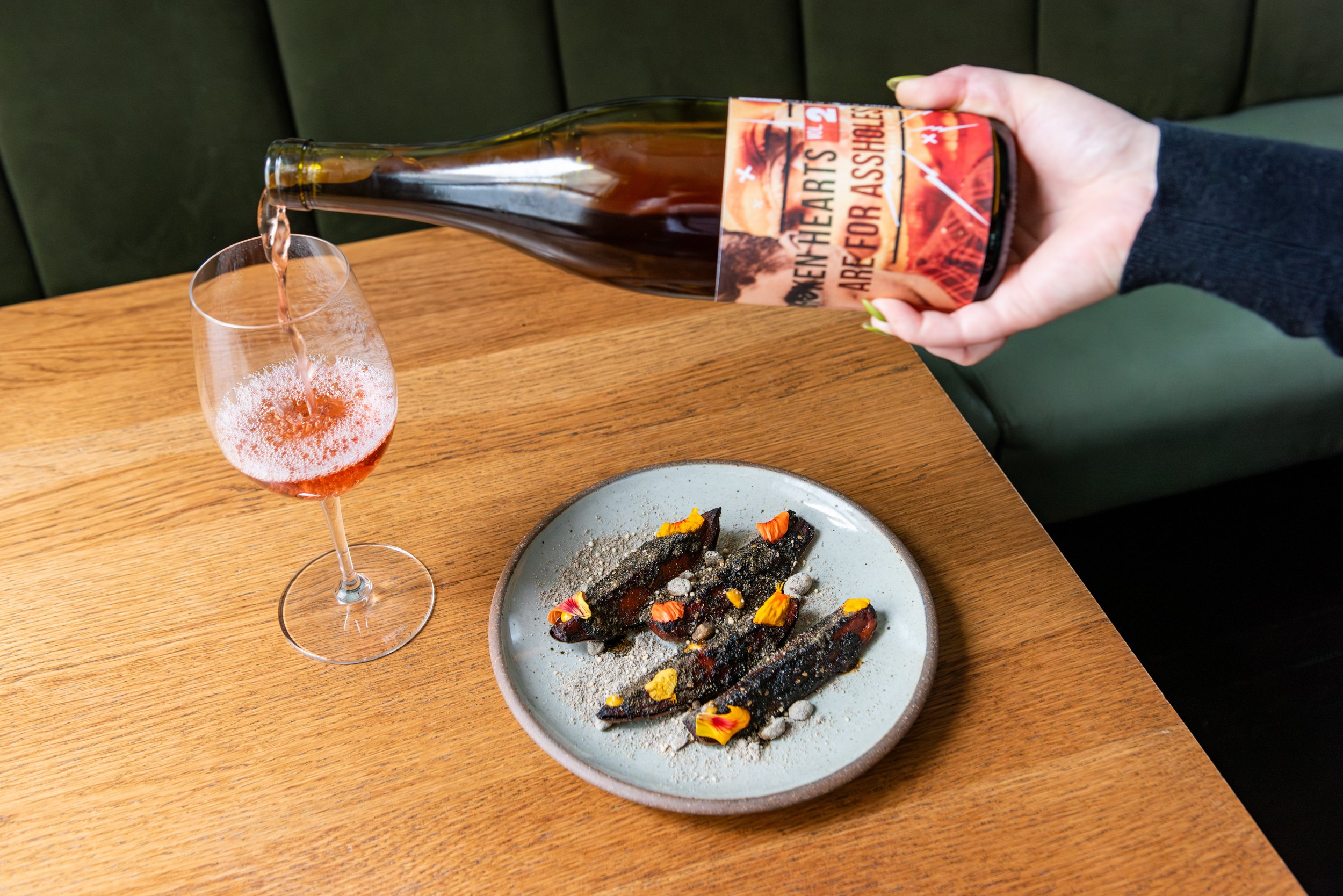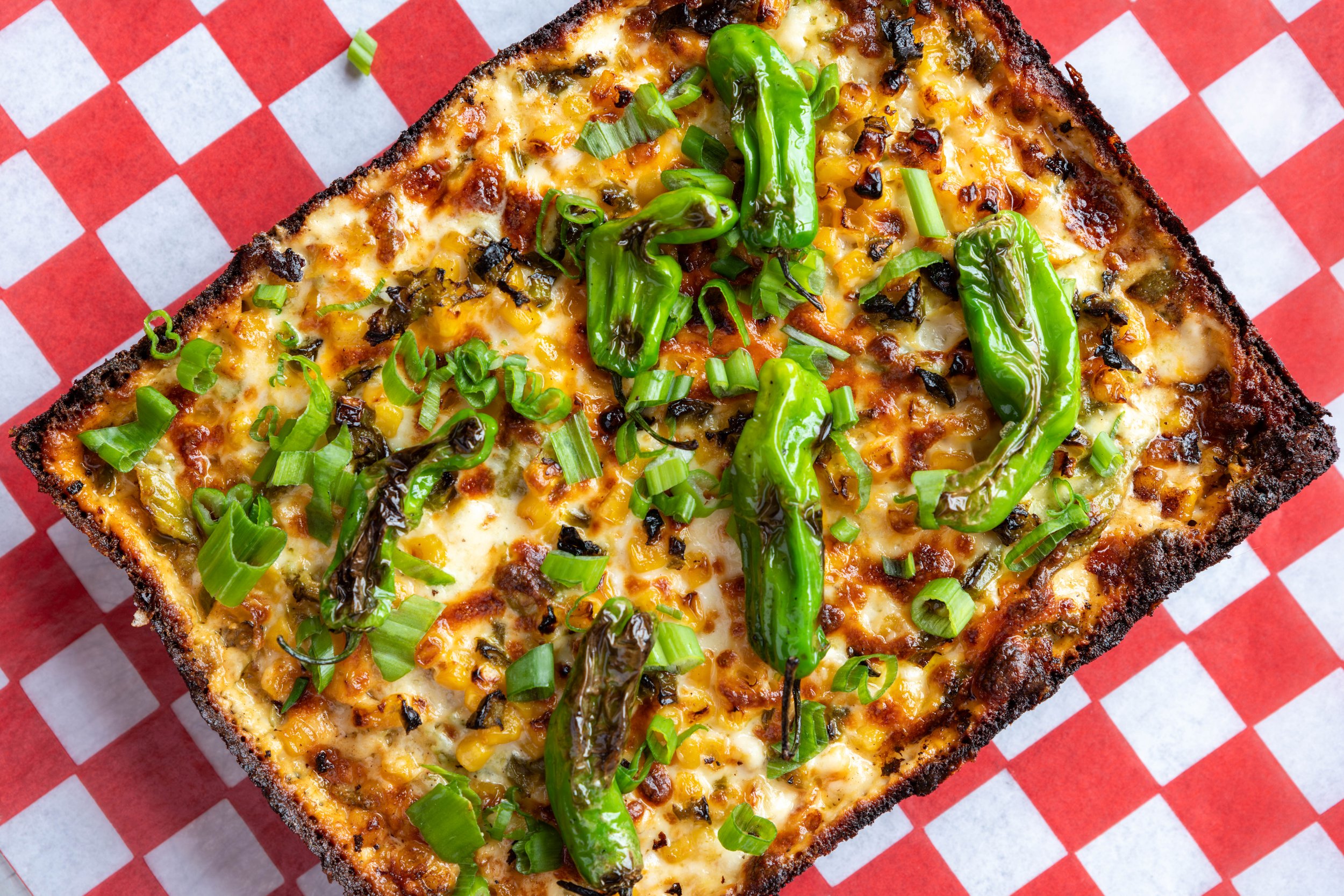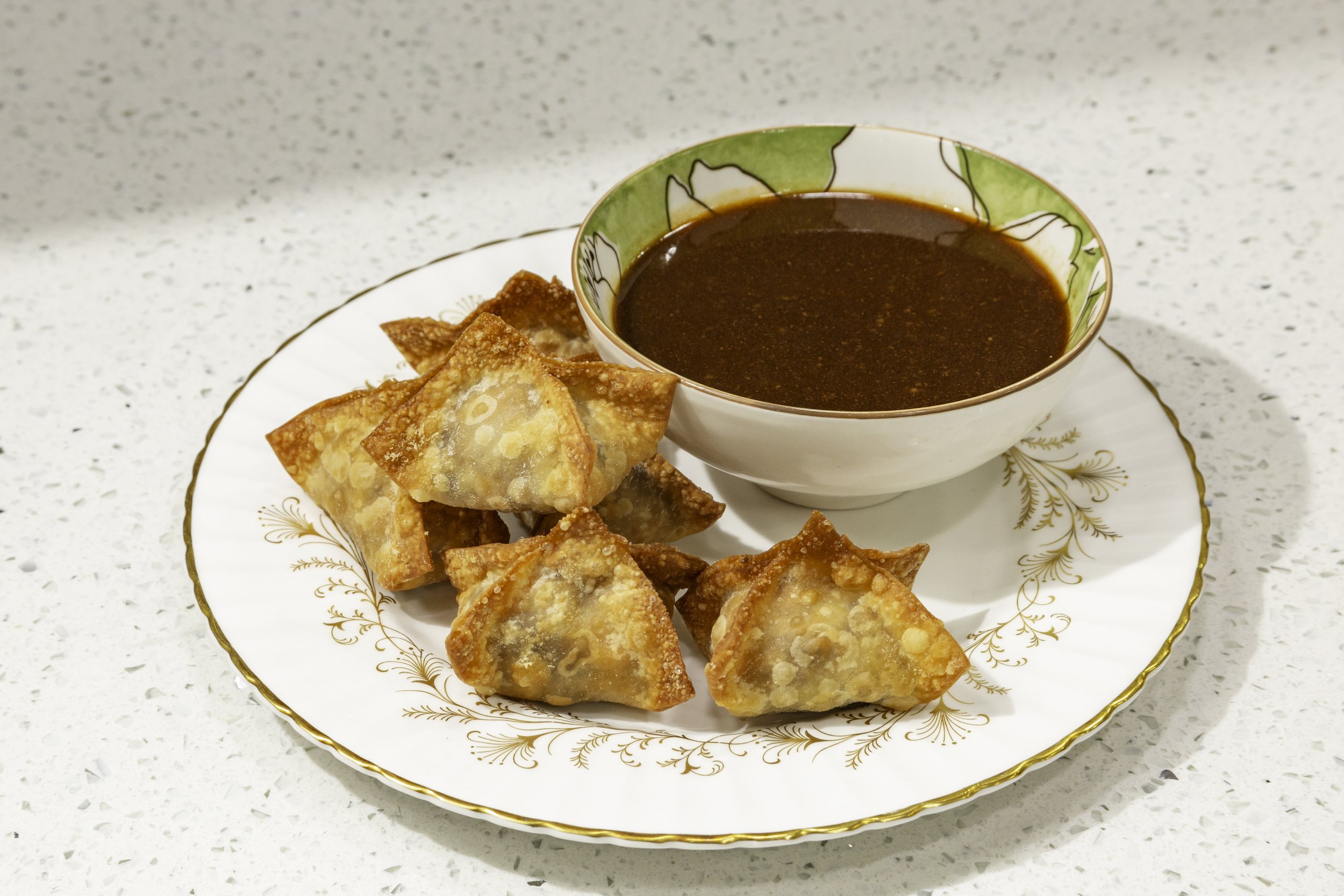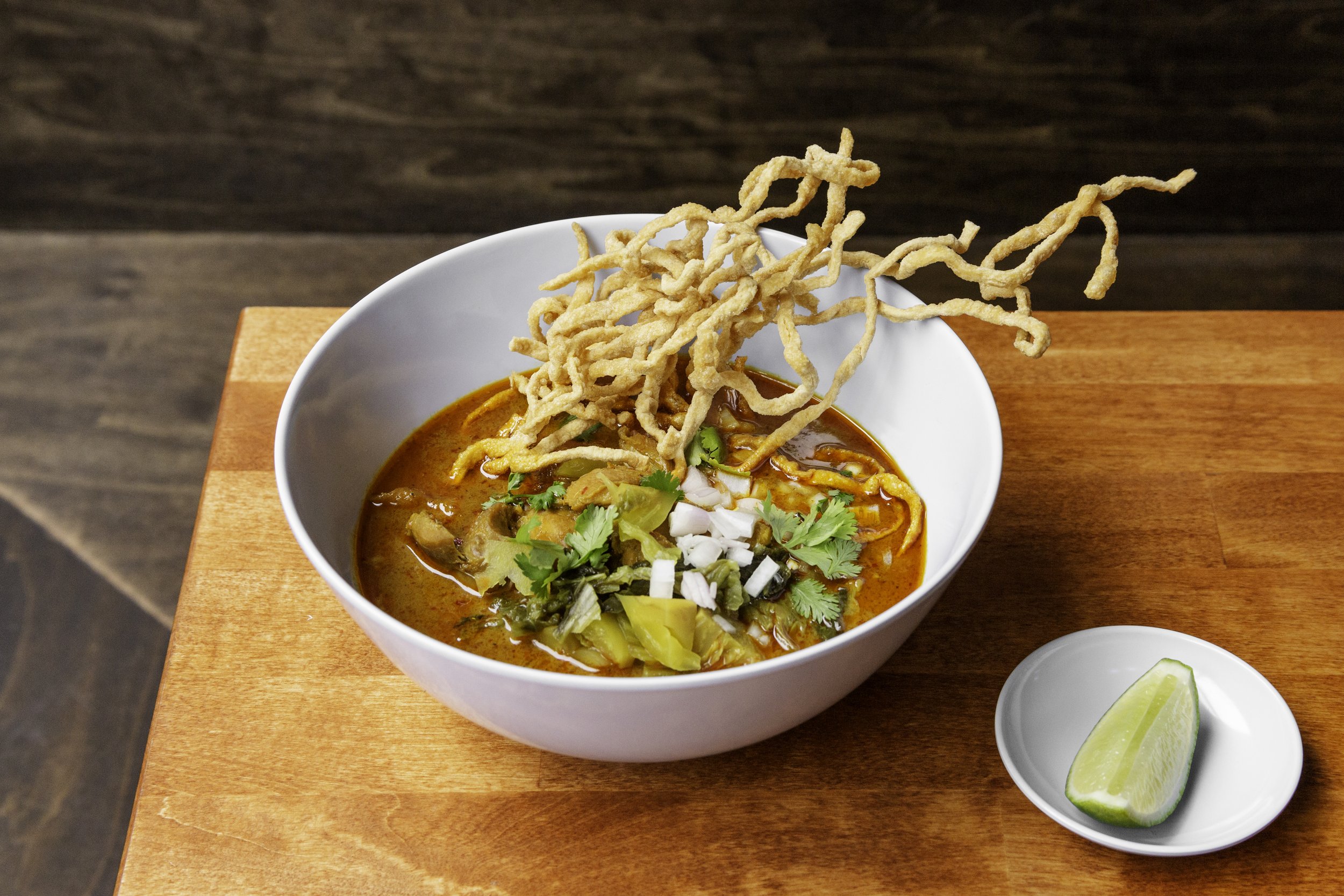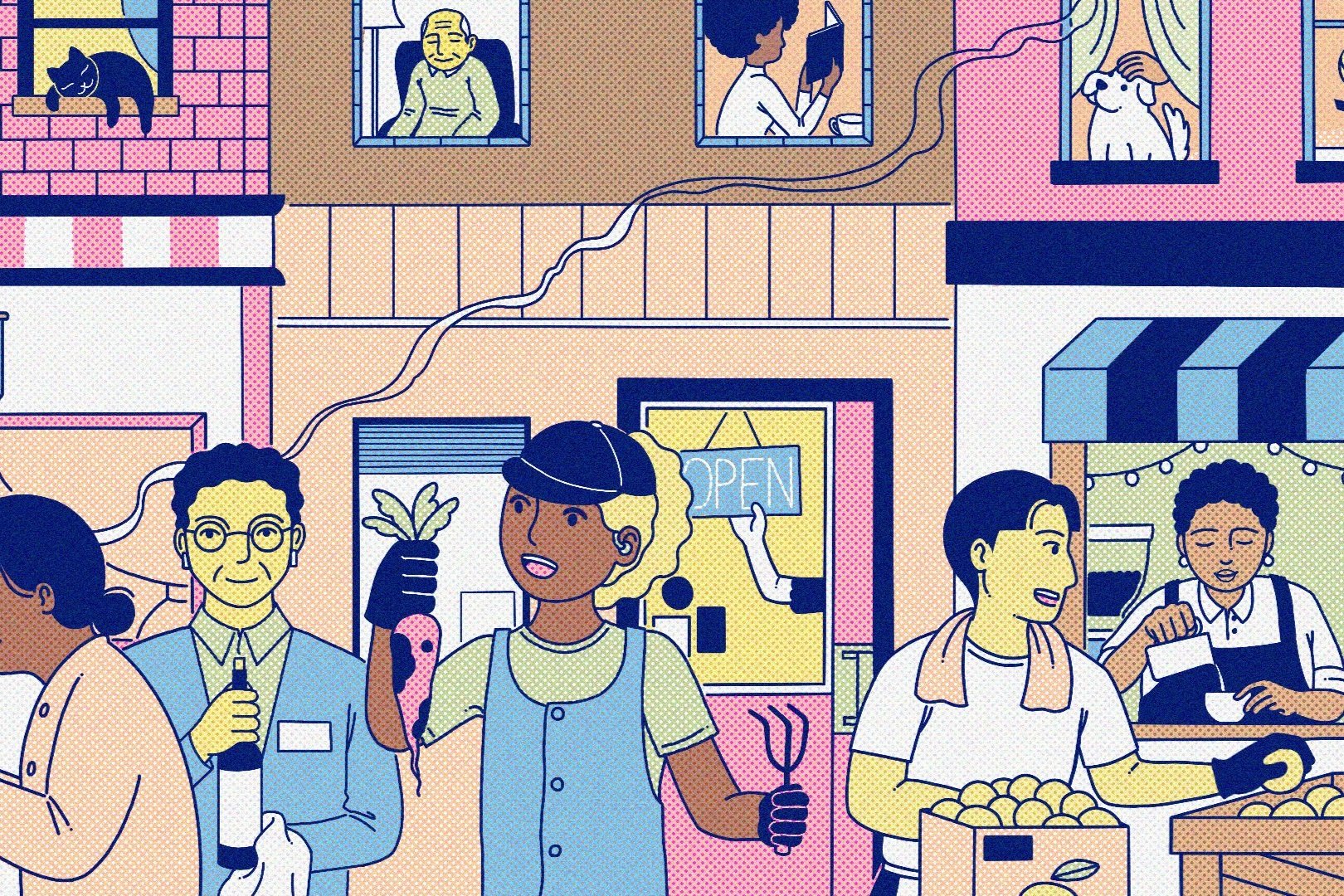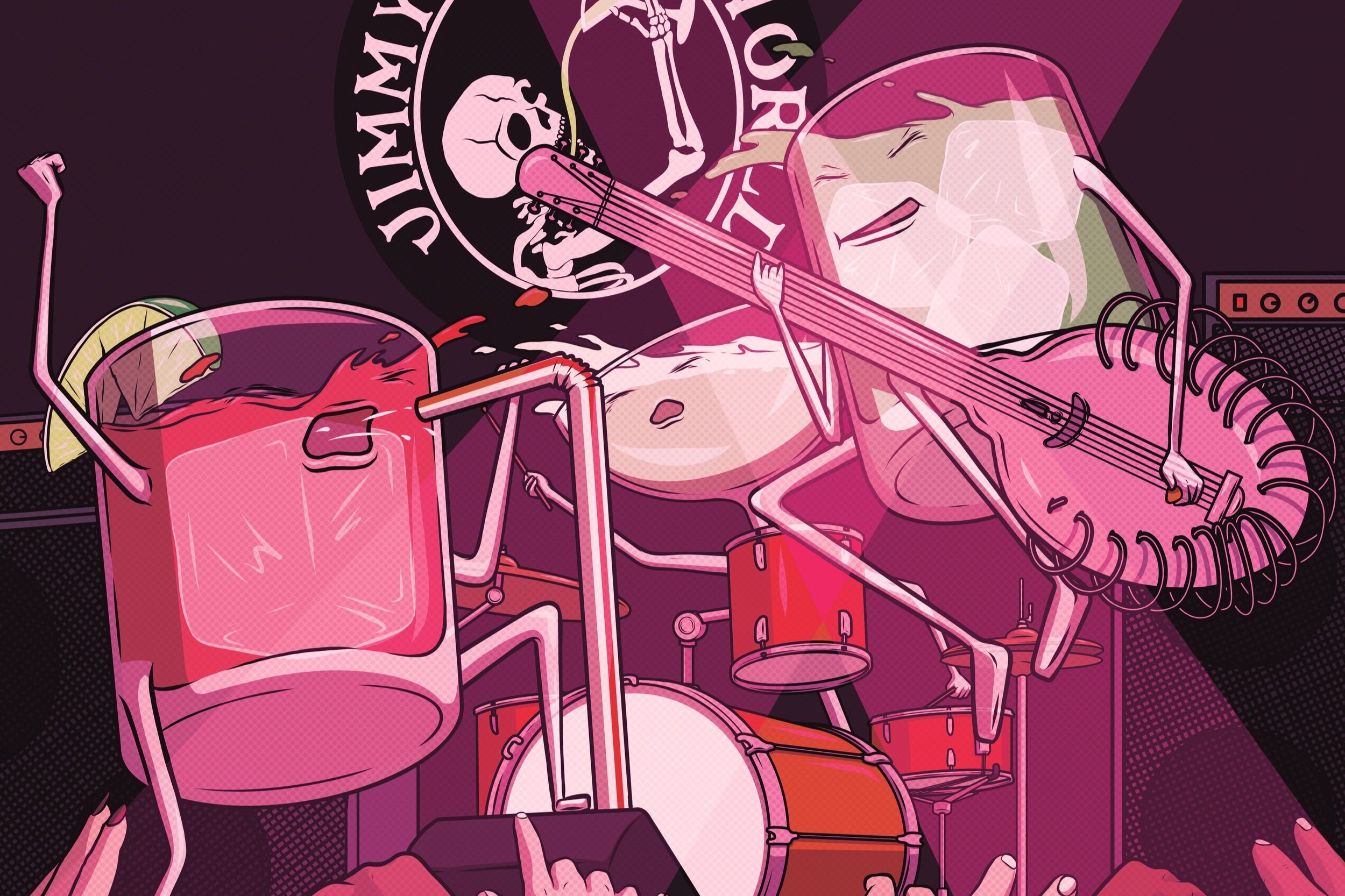Connecting Through Wontons
Food writer Laura Young explores Chef Penelope Wong’s experience with raising awareness and understanding through her Denver food truck, Yuan Wonton.
IllustratioN: Bashel Lubarsky
After 20 years cooking at a private country club, Penelope Wong handed in her letter of resignation. She didn’t have a plan—she just knew that her next venture needed to come from her heart. Wong created Yuan Wonton, a food truck specializing in hand-made dumplings and wontons, cultivating a strong social media following for their pop-ups across Denver. But more than anything, it’s a project grounded in sharing her Chinese-Thai heritage with her customers. Food Writer Laura Young explores Wong’s experience connecting with customers and raising awareness through food.
chef penelope wong making her signature dumplings
Laura Young: You were executive chef at the country club for 14 years. What prompted you to start your own business?
Penelope Wong: Timing is everything. I got a glimpse of what I could offer through my menus at the club—just how far I could push the limits. Leaving a well-paying secure job which I could have retired from without a back-up plan… I’ve never done anything like that. I had that moment of thinking, “What is it that I want to do?” Just knowing that I had to stay in the industry, and knowing I had this opportunity to share the food—the memories of my childhood—with anyone who was willing to try it. It was a way to sustain. It was a way to find work-life balance. And then it was a blessing in disguise that everyone loved it.
LY: How would you describe the food you serve at Yuan Wonton?
PW: Flavors of my childhood with just a little bit of refinement. Growing up, food was everything to me. I have such a big family and we would get together literally every Sunday. Whenever it came to be dinner time, I was always just like, “What's going on in the kitchen? What are we cooking for dinner?” My grandmother cooked for us on a daily basis, and after losing so many members of my family over the years, there’s just so much of it that I want to hold on to and it's all through memory. But the technique that I apply to make it is completely different from how my grandmother would have made it, or how my dad would have cooked it. I’ll start playing around and making different variations until I get one particular, perfect bite, where it’s like, okay, this is it. This is just like Grandma’s. It all starts with a memory and a flavor, and we go from there.
YUAN WONTON’S Chicken Satay Dumplings, Peanut Sauce, and Garlic-Ginger-Scallion Oil
yuan wonton’s Chile Wontons: Pork, Shrimp, Chile Oil, and Crispy Shallots
LY: For most of your services, you run a “secret menu” where people basically pay for an item based on a one-sentence description and teasers on social media. How do you go about building that trust with customers to the point that they're willing to go with something they’ve never tasted and may be unfamiliar with?
PW: The biggest piece has been education. It started with one particular dish. We were talking about congee when we first opened up the truck. I mean, that's just a childhood favorite of most Asians. And my husband was like, “There is no way you're gonna sell congee off this truck to these people.” And I was like, “Wanna see?” I took it as this challenge. So I started taking the next couple of days to post about it and really educate the general public on what it is, what it can be served with, and why it's so important to our culture. The first time we ran with it, we sold out of a five-gallon pot. It really opened my eyes that [customers] would be willing to try other things and that this is a great opportunity for me to not only share these dishes, but special memories behind certain dishes. I found that when you attach a story to a dish, even if it's unfamiliar, there's interest. It's been really cool to see the openness of our customers—so willing to try something that they haven't before. And with a lot of customers, they feel that connection and it reminds them of something special they’ve had.
photos: erin lettera
LY: What level of connection have people expressed to you?
PW: It’s a cultural connection, but it’s also been very emotional. Especially the last couple of years. There’s been a deep emotional connection from a lot of our followers who are Asian American and, you know, they really appreciate the storytelling. They appreciate the flavors that they haven’t been able to get around town.
LY: You’re a Denver native. How have you seen the food scene change over the years?
PW: Oh, it’s changed! For the better. Over the last couple years, it’s been really interesting to see the level of diversity increase with what’s available. We’ve still got quite a ways to go, but just the evolution from where we were 10 years ago to where we are now—we’ve got a dumpling truck, you’ve got samosas all over the place; onigiri at Stowaway every Thursday. It’s really cool to see all the openness in diners around Denver now. It’s becoming a real melting pot.
LY: You’ve been doing a lot of AAPI-focused charity work. Do you feel like that's part of trying to cope with some of what's been going on with the rise in Asian hate crimes?
XL Xiao Long Bao: Pork and Chive Filling, Chicken Bone Broth, Szechuan Chile Oil, Chinese Black Vinegar, and Cilantro
PW: For sure. And it's so much more than just, “let's raise money for this.” It's getting the word out. There's that constant struggle of: Do you talk about it? Do you share this? Will anyone care about this? There's just so many bad memories that have resurfaced, with how I've been treated, how my family has been treated. Especially with our daughter—I never want her to have to go through any of that, which I know I have no control over. I can do the best that I can, but it's just so personal to me. I just have to continue doing it.
LY: Do you feel like sharing your food helps with that?
PW: Absolutely, and especially sharing the stories with the food. You can't love the food and not love the culture. They're one and the same.







